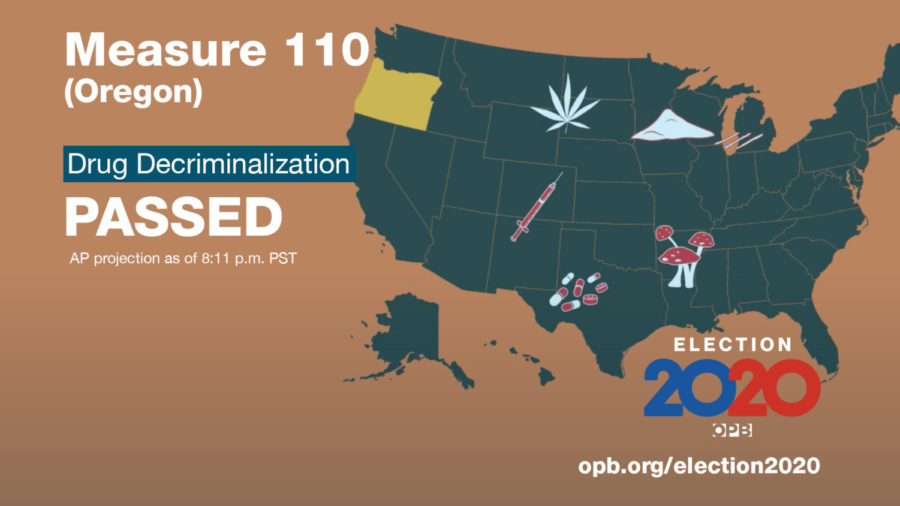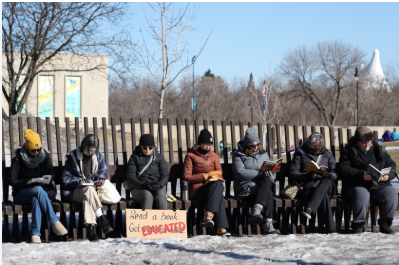The War on Drugs
During the most recent election, many of us were likely focusing on the high stakes, tight presidential race and not measures within important swing states. Considering most of the focus was on Biden versus Trump, many of us missed the passing of Oregon’s measure 110, which decriminalized small amounts of what are typically considered harder drugs (such as cocaine, heroine, and methamphetamines). To many, the initial reaction to this may be shock. But similar measures have historically worked in other areas around the world.
To preface, Oregon has been fighting their own personal war on drugs for some time now. The stem of this issue of addiction typically begins at a young age. The state of Oregon has consistently ranked within the top ten states with the highest use and abuse of both alcohol and other substances starting at the age range of 12-26 years (recoveryconnection.com). On top of this, Oregon has had a governor-declared statewide health emergency since 2018 for their high rates of alcohol and substance abuse. This came as a result of their high rankings of misuse and abuse of alcohol and other substances. As of 2016-17, Oregon was ranked #1 for marijuana, #1 for pain reliever misuse, #2 for methamphetamine, #4 for cocaine, #4 for alcohol use disorder, #21 for heroin in the nation (National Survey on Drug Use and Health, 2016-17). Now it may seem that if drugs are such an epidemic in Oregon, why legalize them? Well other areas around the world have had major success in decriminalizing drugs to lower the overall use and the negative effects that drugs have on other parts of society.
In the 1990s, Portugal was going through an extreme drug crisis. Around 1% of their entire nationwide population was said to have a heroin addiction. To put this into some perspective, Portugal had around 10.19 million inhabitants in the year 1999. For all you math haters out there, 1% of that is around 101,900. That would be equivalent to roughly 85% of Fargo having a heroin addiction. Having this large scale of a drug crisis was taking an extreme toll on the country of Portugal. With their high drug rates came high rates of homelessness, other crime, and overall lower standards of living.
On top of this, more than half of the people incarcerated in Portugal by the late 1990s were in prison for drug charges, which created a high population of addicts in prison. This was the beginning of a repeating cycle of the same addicts going back to jail without getting help, creating a large negative impact on the economy and virtually wasting lots of tax dollars. Portugal realized this issue and decided something must be done. It was at this point that Portugal decided to make the very controversial decision to decriminalize drugs on a national level. At this point, small amounts of drugs are not punishable by prison, rather those who violate this administrative violation could still be punished via fines and/or community service. And since that decision was made, the population most at risk of gaining addiction problems has had a significant decrease in overall drug use. Portugal’s rates of drug use have also declined lower than the European average.
Back in the states, legalization of other drugs such as marijuana have created thousands of new jobs and overall done good things for the economy. Especially since the COVID-19 pandemic hit, many areas whose economies rely heavily on tourism could significantly benefit from the legalization of marjiuana. It is projected that it would create 4,000-5,000 new jobs in Montana’s state economy, which has been suffering greatly since the beginning of the pandemic. On top of this, the widespread legalization of marijuana for medical use has provided millions of Americans with treatment for debilitating illnesses such as epilepsy, cancer, Alzhiemer’s disease, and many, many more.
Overall, the decriminalization of drugs could serve very beneficial for places struggling with addiction in the US and around the world. Rather than sending addicts to jail constantly for their abuse/misuse of drugs just to have them continue on the same path they are at, it would be a smarter investment to put that tax money into helping those suffering from addiction properly recover. It would serve as a better investment in both our community and our economy.
Your donation will support the student journalists of Fargo North High School. Your contribution will allow us to resume physical printing of our newspaper for students at Fargo North!



